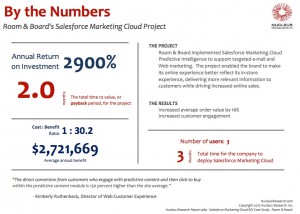— February 15, 2018
Affiliate Marketing works. Not only is there plenty of data showing the high ROI of this marketing channel, we work first-hand with thousands of businesses that thrive on affiliate marketing. If it didn’t work, the industry overall wouldn’t be growing to nearly $ 7 billion by 2020.
However, there are plenty of business that gave it a go, didn’t see the results they wanted to see, and gave up on it. Why doesn’t affiliate marketing work in these cases? In our experience, the majority of these instances fall into the following three reasons.
1. Not tracking metrics.
Time and time again, the number one reason affiliate marketing programs fail seems to be because businesses are too busy to, or simply neglect to, keep an eye on their marketing analytics. That’s like never checking the engine of a car and expecting it to run perfectly smooth for half a million miles.
 “I’m sure my Camaro is just fine. Road trip?”
“I’m sure my Camaro is just fine. Road trip?”
Remember, affiliate marketing is a cost-per-transaction model. Meaning, you only pay when a sale is made. Thus, a company should never lose money on this marketing channel unless big mistakes are made, and that mistake is ignoring the metrics that are raising the red flags.
At the very least, businesses need to keep an eye on the 3 Key Performance Indicators of their affiliate marketing programs: effective Earnings per Click (eEPC), Total Revenue by Affiliate, and Average Order Value (AOV). Even if you have to cobble together a crude Excel file that’s updated by an intern each day, it’s important to measure at least these metrics in order to have a pulse on the success of your program.
Businesses that don’t know why their affiliate marketing failed are guilty of neglecting their metrics. After all, if they had been reviewing them, the program would be unlikely to fail in the first place. Your numbers will reveal everything from which affiliates to focus on, which affiliates need a commission bump, what those commissions should be, and whether it’s the right time to expand.
2. Not working with your affiliates.
Some businesses feel that their job in affiliate marketing ends after a virtual handshake with a new affiliate. The mentality seems to be “great, they’re on board. They better produce! I’ve got other things to do.”
 “Welcome aboard! See you never.”
“Welcome aboard! See you never.”
Every business is busy, especially SMBs that may have a tiny team to oversee the affiliate marketing program. Unfortunately it’s not quite as set-it-and-forget-it as people want it to be. Affiliate marketing is great, but it’s not easy.
There’s a strange stat floating out there:
95% of affiliate marketers fail.
We have no idea where that stat came from. We searched all over and couldn’t find the source report (so please enlighten us if you can find the original source). So while this number that everyone seems to cite is probably bunk, the sentiment behind why this is shared online is clear: it’s not easy to find success as an affiliate marketer. Hence, there are hundreds of articles like this one on Entrepreneurs Unstuck with tips on how to be a better affiliate, including:
- know the products you’re promoting
- test and tweak content
- don’t get distracted or lazy
But it’s not all on the affiliates. If the business actually works with their partners, they would both see greater success. After all, if they don’t really understand the product they are promoting, that’s on the business to educate them. Likewise, both parties should be contributing, testing and measuring how effectively different content works. And the right incentives should be in place to curb laziness and distractions.
For example, one of the best ways to work with affiliates (that they will appreciate very much) is to help them generate content. After all, it’s the most time-consuming part of what an affiliate has to do. Start by providing well-crafted examples of the types of blog posts, videos, or Instagram pictures you’d like for them to emulate. This will immediately get them on the right track as they create. Then help them come up with new, innovative content ideas continually during your partnership. For more tips on encouraging content, check out our previous post.
Many businesses forget that it’s a two-way street. Which is why we always recommend that you actually have the time to run and support an effective affiliate marketing program. If your bandwidth is too tight at the moment, launch it later.
3. Relying too much on an affiliate network.
Keeping on the trend of businesses that want all the benefits of a successful program without putting in any of the work, there are the pay-to-play affiliate networks that businesses can join. Many companies think this is the magic bullet, but that’s simply not the case.
Joining an affiliate network absolutely has its benefits. It saves time when managing affiliates and especially in finding new partners to work with. However, due to the added cost of buying in to the network (with set up fees and ongoing fees adding up to thousands of dollars), the affiliate marketing program that was supposed to be a cost-per-sale channel now has an uphill battle to profitability.
 “By weight, these profits look great!”
“By weight, these profits look great!”
Companies are often surprised that these networks don’t really solve the problems that they thought would be solved. Sure they make the metrics easy to monitor, but if you don’t monitor them, then that’s a moot point. And the networks don’t magically solve the issue of actually spending time communicating with your affiliate partners either. There are just no shortcuts to many of the most time-consuming parts of running a successful campaign. Or put another way, if throwing money at a marketing channel was all you needed to do, everyone would do it.
Of course many companies do find success joining affiliate networks, but their successes comes from intelligently managing the program in addition to buying into the network. When businesses are not willing to do that second part, they inevitably fail no matter how good the network is.
At the end of the day, there’s no replacement for putting in the time and effort to manage a solid, thought-through affiliate marketing campaign. There are ways to cut down on the time it takes, but like anything else in business, success depends on the level of attention you give it. Your affiliates can be a great, profitable source of sales; but only if you are willing to work as hard as they are.
Digital & Social Articles on Business 2 Community
(61)
Report Post









